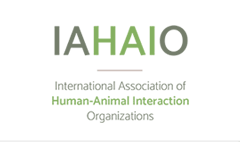Abstract
Background: Animal-assisted intervention (AAI) programs, used widely for patient benefit, have increasingly been used for healthcare workers (HCW) to reduce occupational stress. However, there are barriers to these programs which limit their utilization, for both patients and HCW, specifically infectious disease concerns. The aim of the research project is to identify barriers and facilitators to AAI program use for healthcare worker benefit, and determine knowledge, beliefs, and practices regarding infectious disease risk and control policies, in order to understand the contextual parameters of program implementation.
Methods: We collected perceptions of key stakeholders involved with hospital AAI programs (HCW and AAI workers) through semi-structured in-depth interviews. We used framework analysis to guide thematic coding, completed independently by three researchers.
Results: We interviewed 37 participants in this study. We divided our themes into two topic areas: program use for HCW and perceived infectious disease risk. Use for healthcare workers included perspectives on the benefits for HCW and program barriers and facilitators (specifically collaboration and leadership). Perceived risk included opinions on infection concerns with AAI, thoughts on control measures to reduce this risk, and responsibility for safety during these programs.
Conclusions: While significant benefits were reported for HCW, they were limited by administrative barriers and hazard concerns. Facilitators to surmount these barriers are best implemented with collaboration across the hospital and appropriate leadership roles to direct safe program implementation. By addressing these barriers through targeted facilitators in the form of evidence-backed guidelines, AAI programs can be used to benefit both patients and HCW.
Recommended Citation
Dalton, Kathryn R.; Altekruse, William; Campbell, Peter; Ruble, Kathy; Carroll, Karen C.; Thorpe, Roland J. Jr.; Agnew, Jacqueline; and Davis, Meghan F.
(2022)
"Perceptions and Practices of Key Worker Stakeholder Groups in Hospital Animal- Assisted Intervention Programs on Occupational Benefits and Perceived Risks,"
People and Animals: The International Journal of Research and Practice: Vol. 5
:
Iss.
1,
Article 4.
Available at:
https://docs.lib.purdue.edu/paij/vol5/iss1/4
Included in
Alternative and Complementary Medicine Commons, Animal-Assisted Therapy Commons, Health Services Research Commons, Infectious Disease Commons, Occupational Health and Industrial Hygiene Commons


